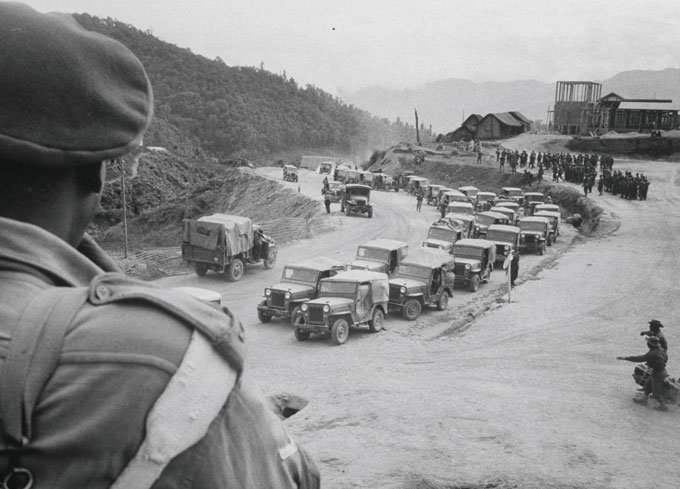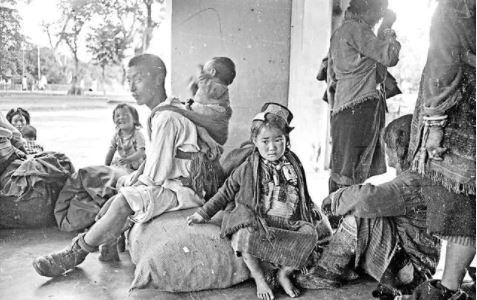What comes to your mind when you think about the India-China war of 1962?
Well, most of the Indians are still feel perplexed when they talk about this war, infamously known for Indian’s massive loss against Chinese aggression. On 20 October 1962, China launched massive offensives in both Arunachal Pradesh and Ladakh sectors. After achieving their initial objectives, the Chinese paused for a couple of weeks and then renewed their offensives.

The Indian Army retreated from the Kameng sector (Arunachal Pradesh), which resulted in a massive panic in Tezpur, which was the nearest sizeable town on the north bank of the Brahmaputra.
Chinese even intruded inside Assam and even entered into Tezpur. Once they captured strategically important locations, they announced an unprecedented ceasefire unilaterally on 20 Nov 1962. This loss still haunts most of the Indians, as this was among the biggest ever humiliations for India.
One may blame on the lack of strategic depth of Nehru Government, or lack of arms and ammunition, weather, or even the difficult terrain, but the truth is, our Army fought this war with valor and even there are various stories of civilians who took arms and stood against the Chinese aggression.
In this article, we will tell you the story of the youth of Tezpur town, who stood against Chinese aggression. They passed through an unprecedented ordeal during the last three days of the war, which finally ended on November 20. Unfortunately, most of the administration of Tezpur escaped and people of the town were left to fend for themselves.

Amid such tiring times, a handful of local youths formed an organization named YEO (Youth Emergency Organization) and took the matter into their hand, and decided to guard the deserted town against the Chinese aggression.
YEO was formed as soon as Chinese aggression was started, and he was headed by Hiren Choudhury. The most interesting aspect about YEO was that most of its members were in their teens or early 20s.
Nehru Government abandoned Assam
Chinese Army was making massive encroachment inside Indian territory and once they reached Bomdila, the Indian Government started showing the initial signs of nervousness. PM Nehru made his infamous statement. PM Nehru said, “my heart goes out to the people of Assam”. The Bomdila had fallen to the Chinese Army and there was a strong possibility of Chinese Army movement towards Tezpur.

This speech had a negative impact and made the people of Assam feel abandoned. There was a general sentiment among the people that they were let down by their own government. People were perplexed and feeling that when their PM seemed helpless, what was going to be their fate?
‘Deserted’ Tezpur was in complete chaos
The administration issued an immediate evacuation order, the currency notes in the banks were burnt down, the jails and mental hospitals were thrown open. The Government even wanted to destroy the generator sets used to provide electricity to the town fearing that the Chinese might capture those. But the local people resisted this move strongly.

The situation was so grim that even the senior police officials had deserted the town. The Superintendent of Police escaped from Tezpur and only Naren Hazarika was holding the fort, who was a local police officer. There was virtually no administrator left in Tezpur.
How YEO Youths protected Tezpur
Almost 90% of the people of the town escaped to other safe locations, while leaving the keys of their homes for YEO members. There was a sense of panic and insecurity for obvious reasons, the town was under a blackout for many days. There was a massive rush on the trains leaving Tezpur, and there were many reports of fights between civilians and army personnel while boarding the trains.
The members of YEO had no arms and ammunition at their disposal, even then those brave youth carried out night patrolling to guard the town for many days. They had no weapons, and had no idea what could have happened to them if the Chinese reached Tezpur. But they took the stand and guarded the town against a possible fall. They ensured all the homes are secured, no property was damaged or looted due to their constant vigil.

YEO members were approaching every house and consoling the people, providing them food and other important items, so that they can survive amid such a chaotic situation. They were able to provide a sense of relief and assurance to the citizens and prepared them to stand tall against any adverse situation.
Fortunately, Chinese Army didnt occupy Tezpur and at the midnight on November 21, 1962, China declared unilateral ceasefire. However, the fear of foreign occupation was such that people were fleeing their homes even after the ceasefire. It is believed that this mass exodus was an outcome of a wrong assessment of the situation by the Nehru government.
However, this won’t take credit away from the brave and patriotic members of YEO. Those were our unsung heroes, who helped their fellow citizens, provided them emotional support, and kept the morale high all this while.
Once the war was over, Indian Army appreciated the bravery of the YEO members, and facilitated them at a function at Tezpur. Unfortunately the Central Government never recognized the unprecedented efforts of these youths, who without worrying about their own safety, guarded the deserted town for three dark nights. We salute these unsung heroes of YEO and appreciate their brave efforts. They proved that “not all the heroes wore capes”.

